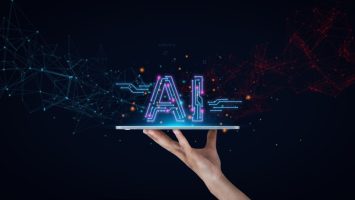Artificial Intelligence (AI) has been one of the most disruptive technologies of the 21st century, altering entire industries, companies, and how we live our lives. From AI-enabled chatbots to machine learning algorithms the benefits of AI technology engage us, but it also has created broader concerns. In this essay, we will dive into the pros and cons of AI technology, its implications on society, and the future of artificial intelligence

Pros of AI Technology
1. Automation and Operational Efficiencies
One of the largest advantages of AI is it can automate simple tasks; with the goal, minimizing human error and increasing productivity. AI robots and automation tools exist in a variety of industries, particularly manufacturing, logistics, and even customer service.
2. 24/7 Availability and Consistency
AI does not need breaks unlike humans, making it ideal for customer service, data analysis, and even theft prevention/cyber security and security measures for companies on a predetermined schedule. For example, many companies are deploying AI chatbots in hopes of increasing customer satisfaction by delivering instantaneous responses.
3. More Data Analysis
AI can process large data sets relatively expediently, identify trends, and make data driven decisions** only when useful and practical. Companies use AI analytics for initiatives such as predictive maintenance, financial forecasting, even personalized marketing for particular customers, businesses, and people.
4. Increased accuracy in medical diagnosis
AI can drastically reduce human error. In fields like health care and finance for instance, Machine Learning models have quantitatively increased medical diagnoses and fraud detection by evaluating massive amounts of data rapidly while securing fields of finance against financial attack.
5. Reduce costs or optimize usage of resources
Using automated variables, more businesses and organizations recipient of AI analytics save money on labor and operational deficiency. AI analytics used in supply chain management is a great example of an efficient means of using an inventory optimization triangle that minimizes waste and cost.
6. More personalization
When we really think about AI we can often think of recommendation systems such as Netflix and Amazon, that provide lists of content similar to the other things users have viewed or purchased. Using quantitative information retrieved about the products users interacted with is useful when understanding how the higher concentration would accomplish user engagement and user satisfaction.
Disadvantages of AI Technology
1. High Implementation Costs
Setting up and maintaining AI systems can be quite pricey. It demands a hefty investment in infrastructure, skilled professionals, and ongoing updates, which can be a tough pill to swallow for small businesses.
2. Job Displacement and Unemployment
One of the major concerns surrounding AI is its potential to automate jobs, particularly in areas like manufacturing, customer service, and transportation. While AI does create new job opportunities, the challenge of reskilling the workforce remains significant.
3. Lack of Creativity and Emotional Intelligence
AI simply can’t match the human touch when it comes to intuition, creativity, or empathy. This limitation can hinder its effectiveness in fields such as art, psychology, and leadership.
4. Ethical and Privacy Concerns
AI systems rely on massive amounts of data, which raises serious questions about privacy, surveillance, and biased algorithms. Issues like discrimination in hiring and law enforcement have ignited important discussions.
5. Overdependence on AI
Relying too heavily on AI might dull our human problem-solving skills. If these systems were to fail, both businesses and individuals could find themselves in a tough spot without alternative solutions.
6. Security Risks and Misuse
AI technology can be misused for cyberattacks, deepfake scams, and even autonomous weapons, presenting significant security and ethical dilemmas.
7. Lack of Transparency in AI Decisions
Many AI algorithms, especially those in deep learning, function as “black boxes,” making it hard to grasp how decisions are made. This lack of transparency is particularly concerning in critical areas like healthcare and legal matters.
